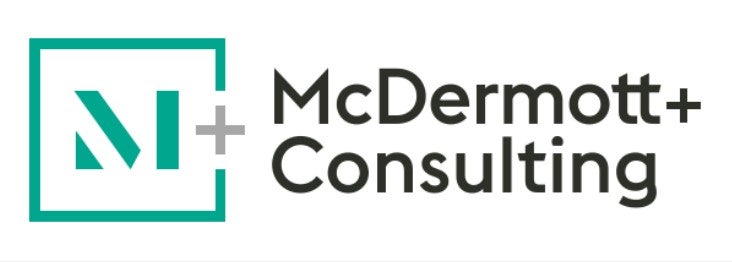THIS WEEK’S DOSE
- House Ways & Means Health Subcommittee Holds Hearing on Value-Based Care. The hearing discussed the benefits of value-based care, the challenges involved in implementation, and ideas about how to increase effectiveness.
- House Ways & Means Committee Advances Four Bills Impacting Medicare Coverage. The legislation about breakthrough devices and weight loss drugs passed with broad bipartisan support.
- House Energy & Commerce Committee Cancels Markup of Privacy, Telehealth Legislation. Apparently because of disagreements with Republican leadership over the American Privacy Rights Act, the markup was canceled just before it was scheduled to begin.
- House Appropriations Labor-HHS Subcommittee Advances FY 2025 Funding Bill. The bill would cut current US Department of Health & Human Services (HHS) funding levels by 7% starting in fiscal year (FY) 2025.
- ONC Issues Final Rule on Information Blocking Disincentives for Providers. The rule finalized the Office of the National Coordinator for Health Information Technology’s (ONC’s) proposal.
- Administration Acts on Clinical Trials. The US Food & Drug Administration (FDA) issued draft guidance on diversity action plans, and the White House held a clinical trials forum.
- CMS Releases CY 2025 Home Health PPS Proposed Rule. The Centers for Medicare & Medicaid Services (CMS) proposed an estimated -1.7% payment cut for Medicare home health payments for 2025.
- CMS Releases CY 2025 End-Stage Renal Disease PPS Proposed Rule. CMS proposed a 2.2% increase in total payments to renal dialysis facilities.
- Supreme Court Issues Chevron Ruling. The 6 – 3 ruling will have significant implications for healthcare laws and regulations.
- Supreme Court Allows Idaho to Offer Emergency Medical Abortions. In the 6 – 3 opinion, the Supreme Court of the United States referred a case back to a lower court, leaving current protections in place for emergency abortions despite the Idaho state law.
CONGRESS
House Ways & Means Health Subcommittee Holds Hearing on Value-Based Care. The hearing examined the challenges and opportunities associated with delivering better health outcomes and Medicare savings through value-based care. Members and witnesses agreed that value-based care has the potential to improve patient health outcomes and reduce costs, but implementation challenges persist. Suggestions to address these challenges included greater alignment, reduced regulatory burdens and improved data sharing. Members expressed concerns about healthcare consolidation, rural and preventative healthcare access, and the difficulty of transitioning to value-based payment systems, particularly in underserved and rural areas.
House Ways & Means Committee Advances Four Bills Impacting Medicare Coverage. The bills advanced with broad bipartisan support. More information on amendments and vote outcomes can be found here, and details on the bill outcomes can be found below:
- H.R. 1691, the Ensuring Patient Access to Critical Breakthrough Products Act, would provide a distinct pathway for immediate four years of transitional Medicare coverage of breakthrough medical devices.
- Advanced by a vote of 36 – 5, with only Democrats voting against.
- H.R. 2407, the Nancy Gardner Sewell Medicare Multi-Cancer Early Detection Screening Coverage Act, would expand access to transitional Medicare coverage and reimbursement for FDA-approved multi-cancer early detection screening tests.
- Advanced unanimously with a vote of 38 – 0.
- H.R. 8816, the American Medical Innovation and Investment Act, would update coverage evidence development requirements and includes provisions related to innovation.
- Advanced unanimously with a vote of 40 – 0.
- H.R. 4818, the Treat and Reduce Obesity Act, would expand access to weight loss drugs for Medicare beneficiaries.
- Advanced by a vote of 36 – 4, with only Democrats voting against.
House Energy & Commerce Committee Cancels Markup of Privacy, Telehealth Legislation. The markup was supposed to consider the American Privacy Rights Act (APRA), newly negotiated bipartisan privacy legislation that would create a national privacy standard, as well as several healthcare bills, including telehealth legislation that would extend Medicare flexibilities due to expire at the end of the year. In light of the committee’s ongoing discussions with Republican House leadership about their concerns with APRA as drafted, the markup was abruptly cancelled. Next steps on APRA and the health bills are unclear.
House Appropriations Labor-HHS Subcommittee Advances FY 2025 Funding Bill. The bill, passed by voice vote along party lines, would cut HHS spending by 7% and contains several controversial riders, including the elimination of Title X funding and a program that provides grants for family planning services. The legislation also would reorganize the National Institutes of Health (NIH) by reducing the number of its research centers from 27 to 15. A full committee markup has not yet been announced but will likely take place before the August recess.
ADMINISTRATION
ONC Issues Final Rule on Information Blocking Disincentives for Providers. The final rule establishes disincentives for healthcare providers who are found to have committed information blocking, and largely adopts the provisions as proposed. Despite comments from stakeholders, the rule does not provide a corrective action, an appeals process or protections against double penalties.
Under the final rule, if the HHS Office of Inspector General finds that a party has committed information blocking, the disincentives are as follows:
- A hospital or critical access hospital would not be a meaningful electronic health record (EHR) user under the Medicare Promoting Interoperability Program in an EHR reporting period.
- Clinicians would receive a zero Promoting Interoperability performance category score for the Merit-based Incentive Payment System in a performance period.
- A healthcare provider that is an accountable care organization (ACO) or part of an ACO would be barred from participating in the Medicare Shared Savings Program (MSSP) for at least one year. HHS would consider the relevant facts and circumstances before applying a disincentive under the MSSP.
The final rule will become effective on July 31, 2024. A press release can be found here.
Administration Acts on Clinical Trials. The FDA issued draft guidance that aims to increase clinical study enrollment of historically underrepresented patient populations by assisting medical sponsors in submitting diversity action plans. The guidance details the format and content of diversity action plans, the circumstances in which they are required, and the timing and process for submitting them to the agency. The guidance also notes the criteria and process FDA will use to evaluate waiver requests. The draft guidance is open for public comment until September 26, 2024. Read the press release here.
On the same day, the White House held a clinical trials forum, which sought to identify effective strategies for increasing access, lowering barriers to participation in clinical trials and speeding discovery of effective therapies. The forum highlighted the positive impact of patient-centered approaches in clinical trials, such as integrating the patient voice into trial design, ensuring trials are equitable and treating patients as collaborators. The discussion also emphasized the importance of collaborative and community-driven research models, using the Advanced Research Projects Agency for Health’s agile funding approach and the NIH’s Care for Health initiative as examples.
CMS Releases CY 2025 Home Health PPS Proposed Rule. The proposed rule is estimated to decrease payments under the calendar year (CY) 2025 Home Health Prospective Payment System (PPS) by -1.7% (-$280 million). The decrease reflects a CY 2025 proposed home health payment increase of 2.5% ($415 million), an estimated decrease of -3.6% (-$595 million) from the permanent behavior assumption adjustment, and an estimated -0.6% (-$100 million) decrease from the updated fixed-dollar-loss ratio. CMS also proposed:
- Changes to the conditions of participation that would require home health agencies to develop, consistently apply and maintain an acceptance to service policy under which home health agencies would be required to make specified information about their services and service limitations available to the public.
- The addition of four new assessment items and modification of one assessment item on the Outcome and Assessment Information Set (OASIS) and an update to the removal of the suspension of OASIS all-payer data collection.
- An update on potential approaches for integrating health equity into the Home Health Value-Based Purchasing (HHVBP) Model.
In the proposed rule, CMS requested information on future home health quality reporting program quality measure concepts and future HHVBP performance measure concepts. Public comment is open until August 26, 2024. A fact sheet can be found here.
CMS Releases CY 2025 End-Stage Renal Disease PPS Proposed Rule. The proposed rule is estimated to increase payments under the CY 2025 End-Stage Renal Disease (ESRD) PPS by 2.2% by increasing the base rate to $273.20, a change of $2.18. CMS estimates that hospital-based ESRD facilities will see a 3.9% increase in total payments and freestanding facilities will see a 2.1% increase in total payments. CMS also proposed several other provisions, including:
- A new ESRD PPS-specific wage index to adjust payment for geographic differences in area wages.
- Expansion of the list of ESRD outlier services to include drugs and biological products that were or would have been included prior to the establishment of the ESRD PPS, as well as inclusion of oral-only drugs in the bundled payment.
- Modifying the low-volume payment adjustment to create two tiers.
- Changes to the clinical measures used in the ESRD quality incentive program.
CMS also requested public comment on a potential future health equity payment adjustment and potential future updates to the data validation policy. Public comment is open until August 26, 2024. A fact sheet can be found here.
COURTS
Supreme Court Issues Chevron Ruling. The Supreme Court issued a decision in two consolidated cases — Relentless v. Dept. of Commerce and Loper Bright Enterprises v. Raimondo — that could fundamentally impact the federal rulemaking process. The cases address what is formally known as the Chevron doctrine, initially established by the Supreme Court in 1984, that held that in cases where a federal statute is ambiguous, courts must give federal agencies deference in their interpretation of the law, as long as the interpretation is reasonable. The Chevron doctrine has been invoked in nearly every litigation challenging an agency action, and it has often meant a high bar for overturning agency interpretations by federal courts.
The Court ruled in favor of the plaintiffs, which essentially overturns the long-held use of Chevron deference. The majority opinion states that “The Administrative Procedure Act requires courts to exercise their independent judgment in deciding whether an agency has acted within its statutory authority, and courts may not defer to an agency interpretation of the law simply because a statute is ambiguous.” While the cases themselves related to fishing and not to health care, the decision is likely to have a significant implication on health care laws and regulations. With more limited deference, agencies will still be able to issue these interpreting regulations, but courts will have more discretion to reject agency expertise or interpretation.
Supreme Court Allows Idaho to Offer Emergency Medical Abortions. In its 6 – 3 ruling in Moyle v. United States and Idaho v. United States, without ruling on the merits, the Supreme Court left in place the lower court’s temporary order that bars Idaho from enforcing its abortion ban when it conflicts with the Emergency Medical Treatment and Labor Act. The case will now return to a federal district court judge, who had temporarily blocked the Idaho law from going into effect.
QUICK HITS
- CMS Announces Medicare Rebate Program Cost Savings. The CMS program, created by the Inflation Reduction Act, will lower Part B coinsurance rates for 64 drugs from July 1, 2024, to September 30, 2024, because the drug companies raised prices faster than the rate of inflation. A press release can be found here, and a fact sheet can be found here.
- US Surgeon General Issues Advisory on Firearm Violence. The advisory declares firearm violence in the United States a public health crisis and outlines an approach to address it. The approach include critical research investments, community risk reduction and education prevention strategies, firearm risk reduction strategies, and mental health action and support. A press release is available here.
- CMS Opens Application for the TMaH Model. Under the Transforming Maternal Health (TMaH) Model, 15 selected state Medicaid agencies will receive targeted technical support to improve health outcomes for mothers and their infants who are enrolled in Medicaid or the Children’s Health Insurance Program. The application is due September 20, 2024, and the notice of funding opportunity and additional resources can be found here.
- HHS Publishes Case Studies on Health Climate Investments. The HHS Office of Climate Change and Health Equity case studies highlight how two nonprofit safety net healthcare providers are using environmental provisions in the Inflation Reduction Act to reduce carbon emissions. A press release is available here.
NEXT WEEK’S DIAGNOSIS
Congress will be in recess next week for the Fourth of July holiday. Following their lead, the Check-Up will take a brief pause and return on July 12, 2024. We are closely watching for release of the Physician Fee Schedule and Hospital Outpatient Prospective Payment System proposed rules, which are pending at the Office of Management and Budget.








 />i
/>i
